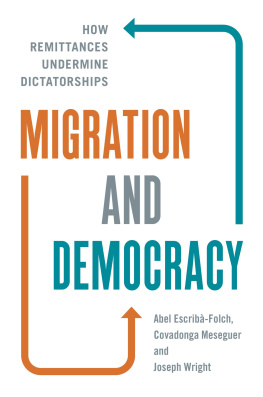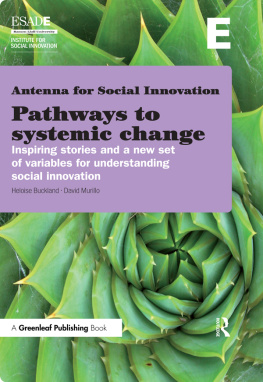Annie Heloise Abel
The Slaveholding Indians (Vol.1-3)
Native Americans as Slaveholder as Participants in the Civil War & Under Reconstruction
Madison & Adams Press, 2021.
Contact:
EAN: 4064066383138
This is a publication of Madison & Adams Press. Our production consists of thoroughly prepared educational & informative editions: Advice & How-To Books, Encyclopedias, Law Anthologies, Declassified Documents, Legal & Criminal Files, Historical Books, Scientific & Medical Publications, Technical Handbooks and Manuals. All our publications are meticulously edited and formatted to the highest digital standard. The main goal of Madison & Adams Press is to make all informative books and records accessible to everyone in a high quality digital and print form.
THE AMERICAN INDIAN AS SLAVEHOLDER AND SECESSIONIST
Table of Contents

PREFACE
This volume is the first of a series of three dealing with the slaveholding Indians as secessionists, as participants in the Civil War, and as victims under reconstruction. The series deals with a phase of American Civil War history which has heretofore been almost entirely neglected or, where dealt with, either misunderstood or misinterpreted. Perhaps the third and last volume will to many people be the most interesting because it will show, in great detail, the enormous price that the unfortunate Indian had to pay for having allowed himself to become a secessionist and a soldier. Yet the suggestiveness of this first volume is considerably larger than would appear at first glance. It has been purposely given a sub-title, in order that the peculiar position of the Indian, in 1861, may be brought out in strong relief. He was enough inside the American Union to have something to say about secession and enough outside of it to be approached diplomatically. It is well to note, indeed, that Albert Pike negotiated the several Indian treaties that bound the Indian nations in an alliance with the seceded states, under the authority of the Confederate State Department, which was a decided advance upon United States practicean innovation, in fact, that marked the tremendous importance that the Confederate government attached to the Indian friendship. It was something that stood out in marked contrast to the indifference manifested at the moment by the authorities at Washington; for, while they were neglecting the Indian even to an extent that amounted to actual dishonor, the Confederacy was offering him political integrity and political equality and was establishing over his country, not simply an empty wardship, but a bona fide protectorate.
Granting then that the negotiations of 1861 with the Indian nations constitute a phase of southern diplomatic history, it may be well to consider to what Indian participation in the Civil War amounted. It was a circumstance that was interesting rather than significant; and the majority will have to admit that it was a circumstance that could not possibly have materially affected the ultimate situation. It was the Indian country, rather than the Indian owner, that the Confederacy wanted to be sure of possessing; for Indian Territory occupied a position of strategic importance, from both the economic and the military point of view. The possession of it was absolutely necessary for the political and the institutional consolidation of the South. Texas might well think of going her own way and of forming an independent republic once again, when between her and Arkansas lay the immense reservations of the great tribes. They were slaveholding tribes, too, yet were supposed by the United States government to have no interest whatsoever in a sectional conflict that involved the very existence of the peculiar institution. Thus the federal government left them to themselves at the critical moment and left them, moreover, at the mercy of the South, and then was indignant that they betrayed a sectional affiliation.
The author deems it of no slight advantage, in undertaking a work of this sort, that she is of British birth and antecedents and that her educational training, so largely American as it is, has been gained without respect to a particular locality. She belongs to no section of the Union, has lived, for longer or shorter periods in all sections, and has developed no local bias. It is her sincere wish that no charge of prejudice can, in ever so small a degree, be substantiated by the evidence, presented here or elsewhere.
Annie Heloise Abel.
Baltimore, September, 1914
I. THE GENERAL SITUATION IN THE INDIAN COUNTRY, 1830-1860
Veterans of the Confederate service who saw action along the Missouri-Arkansas frontier have frequently complained, in recent years, that military operations in and around Virginia during the War between the States receive historically so much attention that, as a consequence, the steady, stubborn fighting west of the Mississippi River is either totally ignored or, at best, cast into dim obscurity. There is much of truth in the criticism but it applies in fullest measure only when the Indians are taken into account; for no accredited history of the American Civil War that has yet appeared has adequately recognized certain rather interesting facts connected with that period of frontier development; viz., that Indians fought on both sides in the great sectional struggle, that they were moved to fight, not by instincts of savagery, but by identically the same motives and impulses as the white men, and that, in the final outcome, they suffered even more terribly than did the whites. Moreover, the Indians fought as solicited allies, some as nations, diplomatically approached. Treaties were made with them as with foreign powers and not in the farcical, fraudulent way that had been customary in times past. They promised alliance and were given in return political positiona fair exchange. The southern white man, embarrassed, conceded much, far more than he really believed in, more than he ever could or would have conceded, had he not himself been so fearfully hard pressed. His own predicament, the exigencies of the moment, made him give to the Indian a justice, the like of which neither one of them had dared even to dream. It was quite otherwise with the northern white man, however; for he, self-confident and self-reliant, negotiated with the Indian in the traditional way, took base advantage of the straits in which he found him, asked him to help him fight his battles, and, in the selfsame moment, plotted to dispossess him of his lands, the very lands that had, less than five and twenty years before, been pledged as an Indian possession as long as the grass should grow and the waters run.
From what has just been said, it can be easily inferred that two distinct groups of Indians will have to be dealt with, a northern and a southern; but, for the present, it will be best to take them all together. Collectively, they occupied a vast extent of country in the so-called great American desert. Their situation was peculiar. Their participation in the war, in some capacity, was absolutely inevitable; but, preparatory to any right understanding of the reasons, geographical, institutional, political, financial, and military, that made it so, a rapid survey of conditions ante-dating the war must be considered.
It will be remembered that for some time prior to 1860 the policy The population of the whole country thus colonized and, in a sense, reduced to the reservation system, amounted approximately to seventy-four thousand souls, less than seven thousand of whom were north of the Missouri-Compromise line. The others were all south of it and, therefore, within a possible slave belt.












